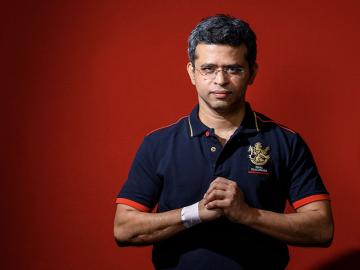
Figuring Out Investing Odds
Investors should not base their decisions on small samples and blindly follow rules of thumb
Contrary to the assumption of rational behaviour that all economists take for granted, most individuals get the odds mixed up under conditions of uncertainty in a predictable manner. A large part of the problem is related to the intrinsic limitations of the mind in processing an avalanche of information. The natural tendency is to adopt shortcuts or depend on rules of thumb rather than attempt to calculate the actual odds. The majority of these ‘heuristics’ work exceptionally well. For example, ‘buying the dips’ from mid-2004 to early 2008 led to exceptional investment results. Yet, the same method could have been catastrophic in the course of the next 12 months!
Daniel Kahneman (the Nobel laureate from Princeton) and the late Amos Tversky extensively researched a phenomenon they labelled as ‘representativeness’. Human beings are highly inclined to depend on analogies/stories in recognising similarities where none exist. Quite often, investors believe two companies, or two market environments are virtually identical because they recognise a number of common characteristics when the actual resemblance is superficial.
It is instructive to observe investor behaviour in the aftermath of the subprime crisis in 2008 and the scary parallels it evoked with the Great Depression of 1929. Though market savants and technical analysts were quick to seize on the similarities, leading to pronouncements of financial Armageddon, the difference in the monetary policy response was vastly different in 2008. With most investors cowering in cash, the rebound of April 2009 caused almost as much grief rather than joy. The response of the markets to the Gulf crisis of 1990 and the comparisons with the 1973-74 OPEC debacle provide another striking example of the damage caused by ‘heuristic’ decisions.
The ‘hot hands’ phenomenon in sport has a lot to offer investors. An unknown Ranji Trophy cricketer, representing a badly placed team, scores three centuries and two fifties in five innings. The national selectors are scheduled to meet in the next couple of days to pick the team touring South Africa. All of a sudden, the cry gets louder to include our unsung hero, given his recent flashes of genius. Investors often experience the same feelings in picking a mutual fund manager. More often than not, the spectacular short-term performance reflects pure chance — incredible good luck rather than skill.
Often investors are over-confident about the significance of results based on either a limited number of observations or a short period of time. The blind faith investors appear to have in government economic releases about industrial production, money supply, inflation etc. proves their willingness to generalise based on small samples. Not only are these numbers fairly worthless, they are often revised! Yet, experienced investors continue to examine and act upon these ‘bird droppings’ to predict future outcomes rather than dismiss them.
A third failing, in many ways confirming the aberrant belief in small samples, is an excessive emphasis on the current situation as opposed to the historical success rate in similar circumstances. The tendency to get carried away by the details of the current situation and neglect past outcomes is a recurrent theme in flawed financial decision making. Investors are far better served in gauging the long-term track record of success or failure in choosing a particular course of action rather than attempting to obtain every fact and sliver of ‘current’ information related to a tricky investment decision.
The timeless wisdom of Puggy Pearson, a legendary poker player is worth quoting: “Ain’t only three things to gambling: Knowing the 60-40 end of a proposition, money management and knowin’ yourself.” For good measure, he added, “Any donkey knows that.”
Disclosure: This column is neither an offer to sell nor solicitation to buy any of the securities mentioned herein. The author, a partner at Fortuna Capital, frequently invests in the shares discussed by him.
(This story appears in the 15 July, 2011 issue of Forbes India. To visit our Archives, click here.)
-
 Apurva Gandhi
Apurva GandhiDear Sir, There is always a great learning from each of your column, which are reflection of your indepth knowledge and experience, Sir pl continue to recommed 2 or 3 stocks for us. Thanks and Best Regards
on Jul 21, 2011 -
 Raveesh
RaveeshDear Sir, I read your column regularly,i like your analysis, you used to recomend few fundamental stock to invest, but from last 2 or 3 columns you are not recomending anything. It will help us if you suggest some stocks to pick.
on Jul 6, 2011














